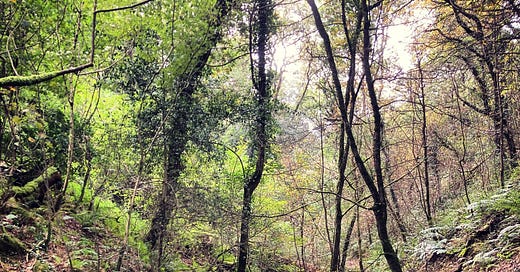“Put your arms out and you’ll take off and fly right up over the sea,” said the old man who passed me on the lane yesterday as I walked towards the old Coffin Path and the cottage with the dead baby in the garden. The wind was up in North Devon and when the wind is up in North Devon it’s not the same as when the wind is up in South Devon. You look at No…
Keep reading with a 7-day free trial
Subscribe to The Villager to keep reading this post and get 7 days of free access to the full post archives.




